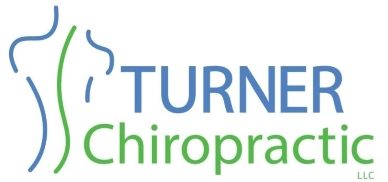Walking is Great For Your Brain!

About 3 years ago I began a journey to better health that not only included eating better, but also exercise. More specifically I began by walking. I had changed my eating habits and was sort of hitting a plateau. I decided to begin walking 30 minutes a day. I figured I wasted at least that much time playing on my phone or watching TV, so I knew I had the time. My daughter was young and I couldn’t go far from the house, so I walked around my yard for 30 minutes. I was probably able to cover about 2 miles in that time period. Because I was sedentary, 30 minutes actually was enough of a challenge for me at first. It’s amazing how well you sleep when you begin exercising, mostly because you are tired. I started losing weight even easier after I began exercising. After a few months, I began to plateau again so I added in running. I walk a lap, then run a lap, and so on for the duration of 30 minutes. For every day that I did that, I would lose half a pound at first. Running had it challenges, but now I am happy to say I am used to it and feel great. When I don’t walk/run for an extended period, my weight fluctuates more and I am not able to just eat whatever I want without repercussions.
I noticed a few things when I began walking that are still true for me today. Like I said, I slept better because it wore me out at first. Now, I am not worn out, but it still helps me sleep better. The fresh air and the act of walking really clears my head and causes me to think more clearly. It also helps relieve stress. There have been times where I was feeling the pressures of life (stressed out) and went for a walk, and came back in the house feeling much better. I also lost weight. I lost it all over my body, even my feet. Another thing that was unintended, but welcomed, was my heart rate and blood pressure dropped. They weren’t even considered high before, but when you are active, you may end up with a new normal that is much healthier. Sounds like a win to me!
When I began learning about Functional Neurology, one of the things I was taught was how great walking is for our brain. I was told that we were created to walk around 12 miles a day. If you think about the time before the invention of transportation, that was probably a drop in the hat for most people. Now, most people barely want to walk to the mailbox. Obesity was not a thing back then. Heart disease was not the number one killer. Diabetes wasn’t a rampant sickness. I wonder if our smartwatches would explode trying to count twelve miles a day. (Just kidding!) The point is, we were created to move and work hard all day long and rest at night. Incidentally, the reward for moving and working hard all day are a good night’s sleep.
Our brain has pattern generators in it that respond to things like walking. Think about how you walk. When you have your right foot forward, your left hand should be swinging forward at the same time, and vice versa when your left foot is forward. Your arms should be swinging forward and not stationary at your sides. Having no (or barely any) arm swing is a sign of something going on in your brain. Different gaits signify different things. You’ve seen people that have a shuffling gait after having a stroke. That’s because the stroke altered tissue in the brain that affects gait. Your stride should be the same distance on the right as the left. Again, these patterns are in your brain. Walking helps exercise these centers in the brain.
I have heard of using walking as rehab for brain fog and clearing one’s head. According to research, walking helps with memory. A study conducted at the University of British Columbia concluded that walking “significantly increased hippocampal volume in older women.” The hippocampus is one of the places for memory in the brain. Think of the implications. People that want to help their memory and/or brain fog can walk daily. As a matter of fact, people using Functional Neurology to rehab brain injuries use walking to help reset the brain and decrease brain fog among other things.
Research shows the benefits of Nitric Oxide on cardiovascular health. It causes the vessels to dilate, which means they get larger and blood flow is better. Many researchers are finding that a decrease plays a key role as one of the markers of cardiovascular disease. You may or may not realize the benefits of dilated (or relaxed) vessels. When vessels are dilated/ relaxed, more blood can go to the various parts of the body bringing vital nutrients and most importantly, oxygen. A lack of oxygen to tissue causes cell dysfunction or death. High cholesterol decreases Nitric Oxide, which is bad. Exercise increases Nitric Oxide, which is good. Nitric Oxide is also believed to play a role in the strength of our vessels. So every time you exercise, you are strengthening your blood vessels along with your heart.
I believe walking even helps boost the immune system. There have been several times when I felt like I had the beginnings of a cold and walked/ran that day and the symptoms went away. I believe by exercising and getting more oxygen to my tissues that it also released immune cells to fight off whatever had begun. Also I was getting Vitamin D from the sun, which has been shown to improve immunity. I will say that the one caveat to this was when I had Covid. I was so tired the first time I had Covid that it just made me more tired. Having experienced that, I would say that in viruses where the immune system is actively being decreased, such as Covid or Flu, rest is the best way to go.
I noticed that in times of severe menstrual cramping that when I walked, the cramps would subside. I believe walking affects pain. It causes your brain to change the pattern of pain or distracts it altogether. Walking releases endorphins in the brain, which cause you to feel good. This is the same method in which a TENS unit works. This may sound crazy, but my husband used it for some of his pain management when he fractured his neck in a car accident. He wasn’t able to walk quickly, but he was able to walk around the yard wearing his neck brace and it helped a lot with his pain level.
Muscle gain is another added benefit of walking. You obviously aren’t going to get bulky, but it does cause your leg and core muscles to tone up. Also, when you build muscle it burns fat. Muscle needs something on which to feed, so you break down fat around it to use for fuel.
As I mentioned earlier, I use walking for stress relief not just in a currently stressful situation, but also for situations that may arise. I find that it helps me deal with stress better. Walking has lasting effects! It you want to turbo charge your stress relief, put on your favorite music while you walk. Your favorite tunes go to your Limbic system (place for emotions in the brain) and cause you to feel happy. You can even use calming music to achieve the same thing. I sometimes rock out to Christmas music while I walk because I just love Christmas and it makes me happy. Judge me if you will, but I have no shame in my joy!
Let me close by adding that walking is free. While it will cost you money to make sure you have decent walking shoes every 6-8 months, the act of walking is absolutely free with huge rewards. Thirty minutes a day, 5-7 days a week is not that much time. You might need to start small with every other day at first. That’s okay! Just start! I know you will see positive results. Even if you work out regularly lifting weights, I still believe you need to walk on most days. It is so important for your brain and body! Get up and get moving and let me know how you do. I would love to hear from you!

Thanks for the article!